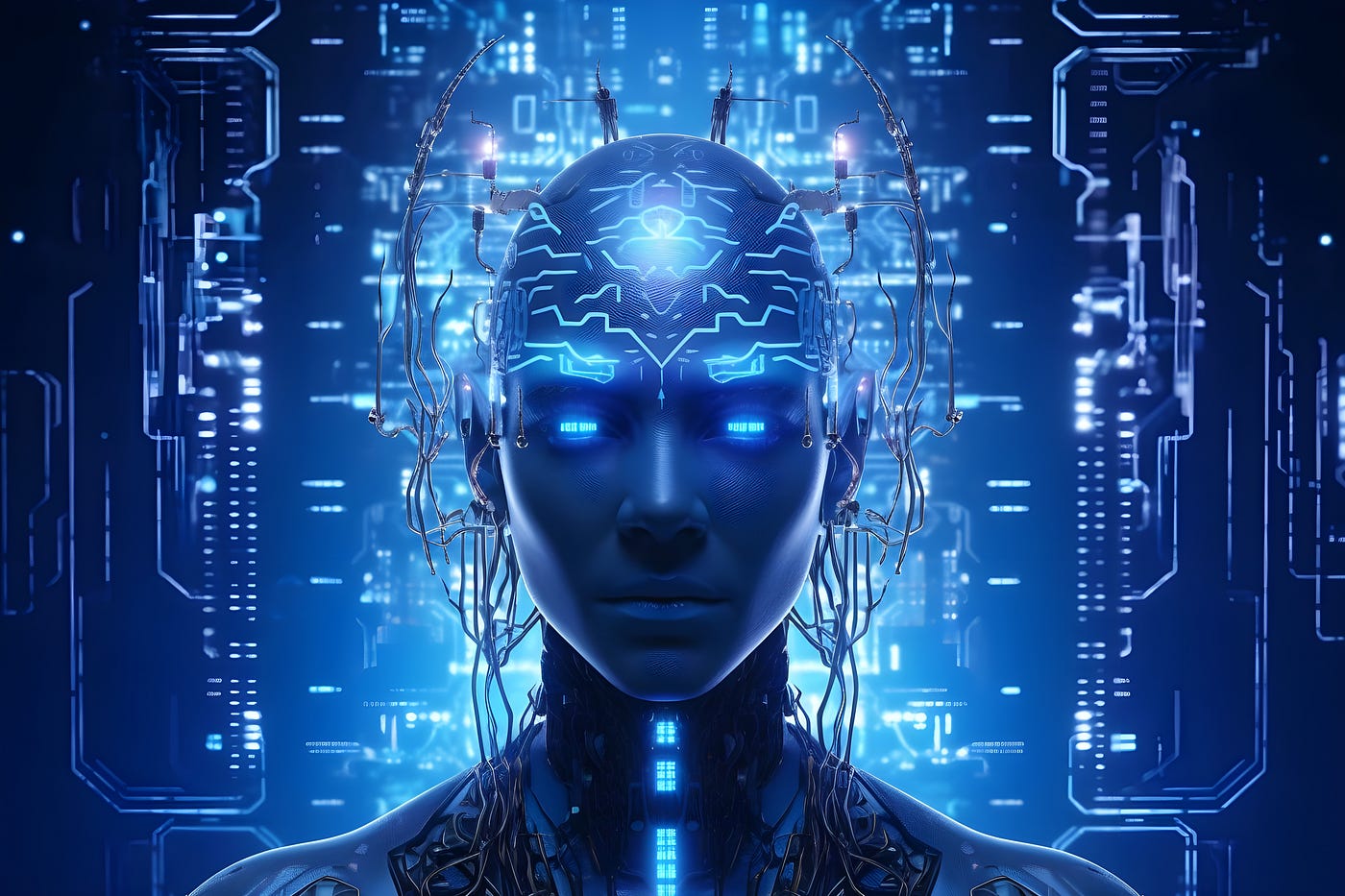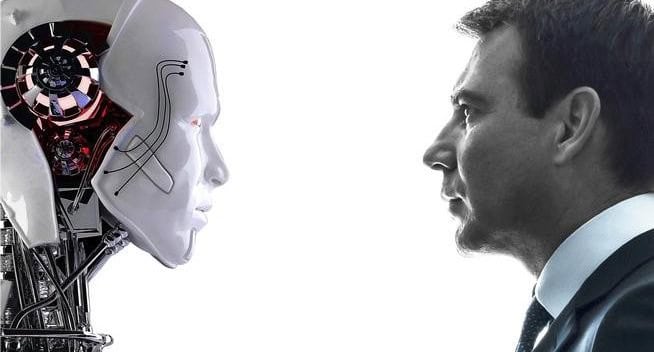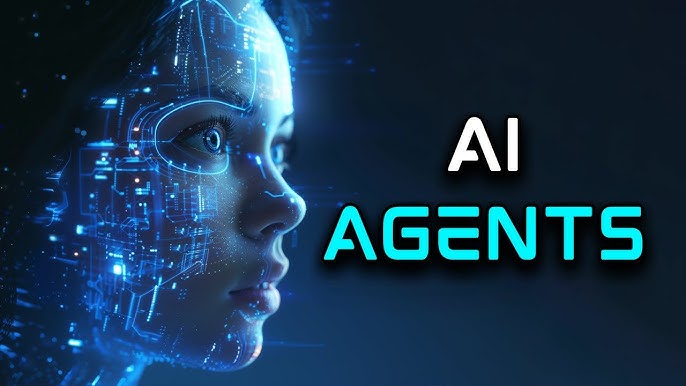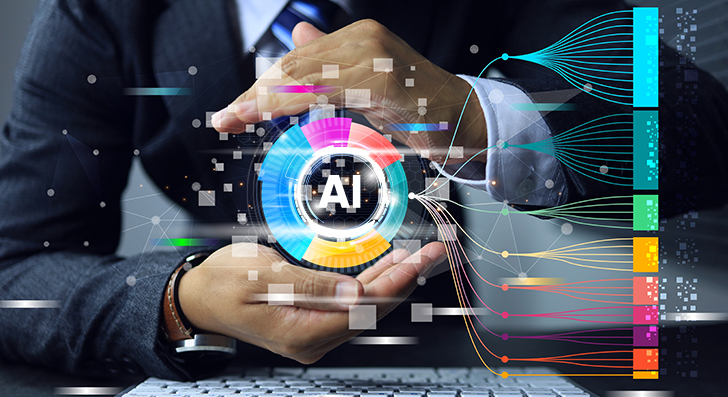The relentless march of technology has always reshaped the way we work. From the looms of the Industrial Revolution to the assembly lines of the 20th century, innovation has both displaced jobs and created new ones. Today, Artificial Intelligence (AI) stands poised to be the next great disruptor, raising a critical question: Will AI automate work to the point of obsolescence, leaving us in a jobless future?
This blog dives deep into this very question. We'll explore the potential impact of AI on the workforce, considering the threat of widespread unemployment. We'll then examine a solution gaining traction: Universal Basic Income (UBI). Could this guaranteed income for all citizens act as a safety net, ensuring economic security in the face of AI-driven change? Join us as we unpack the complexities of AI and its potential impact on the future of work, and explore the possibility of UBI as a path towards a more equitable future.
The rise of artificial intelligence (AI) is a double-edged sword. While it promises to revolutionize industries and improve our lives, it also raises concerns about job displacement. Could automation powered by AI leave a significant portion of the workforce unemployed, making Universal Basic Income (UBI) a necessity?
The Automation Threat
There's no denying that AI is automating tasks previously done by humans. From manufacturing robots to self-driving trucks, AI is making inroads into various sectors. Studies suggest millions of jobs could be affected, forcing people to adapt or face unemployment.
This isn't entirely new. History shows technological advancements have disrupted the job market before. The Industrial Revolution replaced manual labor with machines, but it also created new opportunities. The concern now is that AI might be different, automating not just manual tasks but also cognitive ones.
The Case for UBI
Universal Basic Income (UBI) proposes a guaranteed income for all citizens, regardless of employment status. Proponents argue that UBI could be a safety net in a future with widespread automation. It would provide financial security, allowing people to pursue education, start businesses, or engage in creative endeavors.
UBI could also boost the economy. With a basic income, people would have more disposable income to spend, stimulating economic activity. Additionally, a UBI program could free people to pursue further education and training, closing the skills gap and fostering innovation.
Challenges and Considerations
Implementing UBI is a complex issue. There are concerns about the cost, potential disincentive to work, and the design of the program itself. Determining the appropriate income level and funding mechanisms would require careful planning and public discourse.
The Road Ahead
The future of work with AI is uncertain. While some predict mass unemployment, others believe new opportunities will emerge. Regardless, AI will likely reshape the job market. UBI is one potential solution to navigate this change and ensure a more equitable future.
Artificial intelligence (AI) is having a significant impact on the job market, both positive and negative.
AI and Automation:
- AI automates tasks, potentially displacing workers in fields with repetitive or predictable work (manufacturing, data entry).
- This isn't the first time technology has disrupted jobs, but some fear AI's ability to automate cognitive tasks could be more widespread.
The Future of Work:
- While some jobs may disappear, AI is also creating new opportunities in areas like data science, AI development, and jobs requiring human-computer collaboration.
- The focus may shift from repetitive tasks to those requiring creativity, critical thinking, and social skills.
The Need for Adaptation:
- Reskilling and upskilling the workforce will be crucial to adapt to the changing job market.
- Educational systems may need to adjust to better prepare people for jobs of the future.
The Role of Policy:
The impact of AI on unemployment rates is a major concern. Policymakers may need to consider solutions like Universal Basic Income (UBI) to provide a safety net for displaced workers.
A Safety Net for the Age of Automation?
Universal Basic Income (UBI) is a proposed social welfare system that would provide all adult citizens with a regular, unconditional sum of money. This guaranteed income would be independent of employment status, wealth, or marital status. As discussions on the impact of automation on jobs intensify, UBI has emerged as a potential solution to mitigate the negative effects of technological disruption.

The Rationale for UBI
Safety Net in the Age of Automation: A key concern surrounding AI and automation is widespread job displacement. UBI could provide financial security for those who lose their jobs due to automation, allowing them time for retraining or pursuing new opportunities.
Reduced Poverty and Inequality: UBI has the potential to alleviate poverty by providing a basic level of income for all citizens. This could reduce income inequality and improve overall well-being.
Stimulating the Economy: With a guaranteed income, people would have more disposable income to spend, potentially boosting economic activity.
Increased Freedom and Choice: UBI could empower individuals to pursue education, start businesses, or engage in creative endeavors without the immediate pressure to find work.
Challenges and Considerations
Cost: Implementing UBI would require significant funding. Tax increases or reallocation of existing social programs might be necessary.
Disincentive to Work: Some argue that UBI could discourage people from working, potentially leading to labor shortages.
Design and Implementation: Determining the appropriate UBI amount, eligibility criteria, and funding mechanisms are complex issues requiring careful planning.
Potential Inflationary Effects: A large influx of money into the economy could lead to inflation, potentially negating the benefits of UBI.
The Debate Continues
UBI is a complex and controversial proposal. Proponents see it as a necessary adaptation to a changing world, while critics raise concerns about cost and potential negative effects. Pilot programs are underway in various locations to gather data on the real-world impacts of UBI.
Looking Ahead
The future of work with AI is uncertain. While some predict mass unemployment, others believe new opportunities will emerge. Regardless, the conversation around UBI is likely to continue as societies grapple with the potential consequences of automation.
The rise of AI and automation raises a profound question: what happens to a society where work is no longer central to everyone's lives? Universal Basic Income (UBI) emerges as a potential solution, but its implementation presents a complex ethical landscape. Here's a closer look at the potential implications:
Loss of Identity and Purpose:
Work is often a core element of personal identity. Without it, some individuals might experience feelings of worthlessness or a lack of purpose.
UBI could mitigate this by freeing people to pursue passions and contribute to society in non-traditional ways. However, ensuring a sense of purpose and fulfillment for all would be essential.
Redefining Work and Value:
If UBI allows people to choose non-traditional work, how do we define and value different contributions to society?
Redefining "work" to include volunteerism, caregiving, and artistic pursuits might be necessary.
Social Cohesion and Contribution:
Work fosters social interaction and a sense of shared purpose. Without it, social isolation and a decline in civic engagement could occur.

UBI programs could incentivize community involvement or require a certain amount of volunteer work to maintain eligibility.
The Morality of "Free Money":
Some argue everyone should contribute to society through work. UBI might be seen as a handout that undermines work ethic.
However, UBI could be framed as an investment in human capital, allowing people to pursue education, entrepreneurship, or innovation that ultimately benefits society.
The Responsibility of Automation:
If automation displaces workers, who bears the ethical responsibility for their well-being?
Companies developing and deploying AI might have a moral obligation to invest in retraining programs or contribute to UBI funding.
Navigating the Ethical Landscape
The ethical implications of UBI are multifaceted. Careful consideration is needed to design a system that fosters a sense of purpose, encourages social contribution, and promotes a just distribution of resources. Open discussions and pilot programs will be crucial in navigating this ethical tightrope as we move towards an increasingly automated future.
Conclusion :
In conclusion, the rise of AI and automation presents a unique challenge: how to ensure a prosperous and equitable future where work may not be central to everyone's lives. Universal Basic Income (UBI) offers a potential solution, but its implementation necessitates careful consideration of the ethical implications. From potential identity crises to the redefinition of work and social contribution, UBI demands a nuanced approach that fosters purpose, incentivizes social engagement, and upholds a just distribution of resources. As we navigate this uncharted territory, open dialogue, pilot programs, and a commitment to ethical considerations will be paramount in shaping a future where both humans and technology can thrive.
Read more :
1.AI POWERED FRAUD DETECTION AND LOSS PREVENTION
2.Demand Forecasting with AI: Avoiding Stockouts and Overstocking
3.Predictive Maintenance for Retail Equipment: Using AI to Prevent Downtime
4.Optimizing Delivery Routes and Logistics with AI
5.Augmented Reality (AR) and Virtual Reality (VR) Shopping Experiences powered by AI
6.AI-driven Visual Search and Recognition for In-Store Shopping
7.Biometric Authentication and Frictionless Checkout with AI
8. AI for Social Justice: Combating Discrimination and Promoting Equality
9. AI for Citizen Science: Empowering the Public to Contribute to Research
10.The Dark Sides of AI Technology: The Risks and Challenges Ahead
For more information contact : support@mindnotix.com
Mindnotix Software Development Company


 AI-Taxi App
AI-Taxi App AI-Food App
AI-Food App AI-Property Mgmt App
AI-Property Mgmt App AI-CRM
AI-CRM AI-Fantasy App
AI-Fantasy App
 Web Development
Web Development App Development
App Development Business & Startup
Business & Startup Hire Developer
Hire Developer
 Digital Marketing
Digital Marketing Lead-generation
Lead-generation Creative Agency
Creative Agency Branding Agency
Branding Agency Augmented Reality
Augmented Reality Virtual Reality
Virtual Reality Internet of Things
Internet of Things Artificial Intelligence
Artificial Intelligence Blockchain
Blockchain Chatbot
Chatbot




